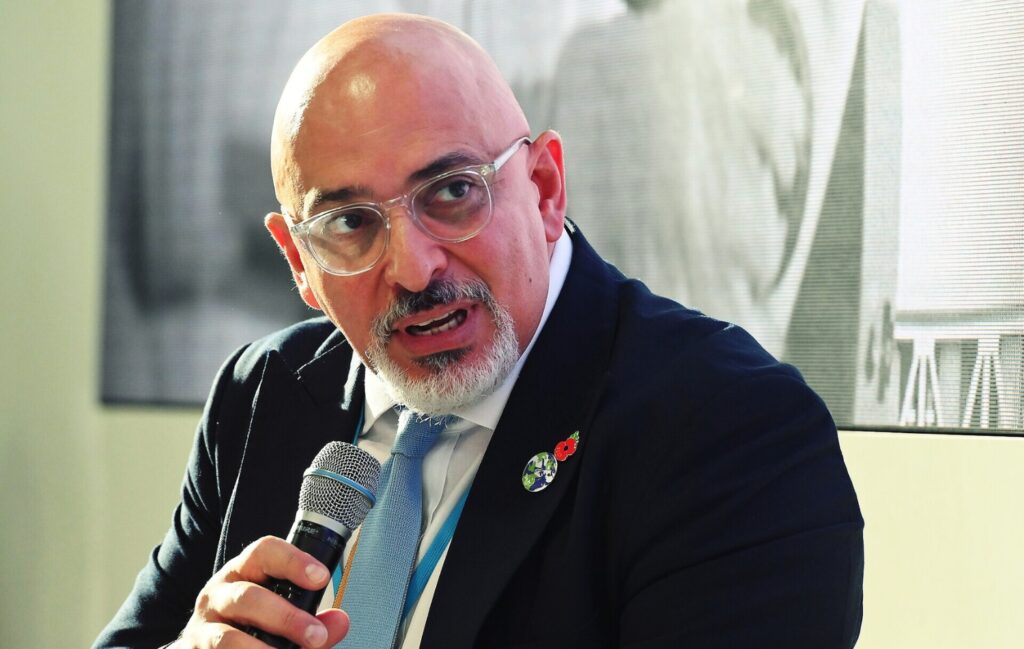The Environmental Protection Agency (EPA) under the Trump administration is run by fossil fuel allies determined to do polluters’ bidding, U.S. senators are telling the DC Circuit Court of Appeals. The group of Democratic senators calls out this extensive fossil fuel industry influence in a recent friend-of-the-court brief filed in a lawsuit challenging the Trump EPA’s replacement of the Clean Power Plan meant to regulate carbon emissions from power plants.
Trump’s EPA replaced the Obama-era Clean Power Plan with what it calls the Affordable Clean Energy (ACE) rule, which requires only minimal emissions reductions by individual power plants rather than a systemic approach to cleaning up climate pollution from the power sector. The American Lung Association, which recently reported nearly half of Americans are breathing unhealthy air, is leading the legal challenge to the rule, with support from a coalition of states and cities, environmental and public health organizations, and over 70 Democratic members of Congress.
Bad things* come in threes.
*key errors in @EPA‘s rationale for repealing the Clean Power Plan
We filed an amicus brief in the DC Circuit opposing the Trump admin’s so-called Affordable Clean Energy rule. Check it out.https://t.co/I9b7KGciqn
— Policy Integrity (@PolicyIntegrity) April 27, 2020
Five Democratic senators — Sheldon Whitehouse of Rhode Island, Ed Markey of Massachusetts, Jeff Merkley of Oregon, Brian Schatz of Hawaii, and Kirsten Gillibrand of New York — submitted a legal brief that specifically points to the fossil fuel industry’s role in infiltrating the EPA and dictating the agency’s policymaking. The senators describe top EPA officials’ ties to the industry it is tasked with regulating and explain how fossil fuel interests have captured the agency. Within this context, the senators argue that no court could possibly conclude that EPA is engaged in reasoned, unbiased decision-making.
“With former fossil-fuel industry lobbyists and lawyers at the helm, EPA has decided to do nothing about [greenhouse gas] emissions,” the senators write. “The ACE Rule is not the product of reasoned decision-making by EPA that in any serious way grapples with the evidence of harms from climate change.”
Fossil Fuel Ties at EPA
The senators’ brief points out how former EPA Administrator Scott Pruitt, former top EPA official Bill Wehrum, and current EPA Administrator Andrew Wheeler are all closely connected to the fossil fuel industry.
Before he was head of the EPA (Feb. 2017 — July 2018), Pruitt was the attorney general for Oklahoma, a state heavily dependent on the oil and gas industry. “Pruitt’s political career was largely underwritten by the fossil-fuel industry,” the senators’ brief notes — the fossil fuel sector poured over $1.25 million in donations to his political campaigns.
Scott Pruitt’s meetings since leading the EPA:
Fossil Fuel Industry: 105
Environmentalists/ scientists: 5https://t.co/Buku2zaeLM— Miranda Green (@mirandacgreen) October 6, 2017
As Oklahoma attorney general, Pruitt took up fossil fuel companies’ campaigns against environmental regulations and sued the EPA, the agency he would later lead, 14 times, which included suing to stop the Clean Power Plan. In nearly all of these lawsuits there was at least one industry co-litigator that contributed to Pruitt’s campaign or political action committee (PAC).
In addition to suing EPA, Pruitt sent barely edited form letters to federal regulators that came to him directly from oil and gas lobbyists. The senators’ brief mentions one example where a lobbyist from Devon Energy drafted a letter saying EPA was overestimating air pollution caused by natural gas drilling and sent it to Pruitt, who then copy and pasted it verbatim onto official letterhead and sent it to Washington.
Before coming to EPA, Pruitt also served as chair of the Republican Attorneys General Association (RAGA). Fossil fuel interests contributed more than $5 million to RAGA’s political arm during the 2014 and 2016 election cycles, the senators’ brief notes. And as DeSmog previously reported, Republican attorneys general fighting the Clean Power Plan (including Pruitt) took in over $2.4 million from polluting interests in those election cycles. Republican attorneys general even met privately with fossil fuel companies like Murray Energy and Southern Company at a 2015 RAGA summit, just one week before 27 Republican attorneys general filed a lawsuit against the Clean Power Plan.
The process of repealing and replacing the Clean Power Plan began under Pruitt’s leadership at EPA, and continued with his successor Andrew Wheeler. Wheeler was a top lobbyist for dirty energy interests, including coal company Murray Energy. In lobbying for Murray, Wheeler earned nearly $3 million for his lobbying firm. Repealing the Clean Power Plan was at the top of Murray CEO Bob Murray’s wish list that he circulated among the new Trump administration.
EPA chief Andrew Wheeler is in Kentucky today promoting the ACE rule.
Can’t help but think of the Kentucky coal miner with black lung who drove 3 hours to WV last November to beg the EPA to enact the Clean Power Plan: “We’re literally dying.” https://t.co/q4pb8zUIm1 pic.twitter.com/7rSUdU5EtT
— Alexander Kaufman (@AlexCKaufman) August 24, 2018
Another chief architect of the Clean Power Plan replacement was Bill Wehrum, former head of EPA’s Office of Air and Radiation. He resigned in June 2019 amid a congressional investigation into his contact with former industry clients. Prior to assuming his EPA position, Wehrum was an attorney representing fossil fuel companies and trade groups. His clients included big names like ExxonMobil, Chevron, Koch Industries, the American Petroleum Institute, American Fuel and Petrochemical Manufacturers, Duke Energy, Dominion Resources, and Utility Air Regulatory Group (UARG). “Wehrum met with UARG and several electric utilities to discuss replacing the [Clean Power Plan] just weeks after he assumed his duties as Assistant Administrator,” the senators’ brief points out.
Furthermore, the brief notes that Pruitt, Wheeler, and Wehrum have all questioned the well-accepted influence of human activity on climate, a view that aligns with the interests of the fossil fuel industry.
‘Rampant cronyism, conflicts of interest, and corruption’?
The senators argue that the ACE rule is “arbitrary and capricious” as EPA “rejected well-established scientific and economic research” and “instead embraced self-serving proposals from the fossil fuel industry that will not significantly reduce emissions.” EPA’s obligation to regulate greenhouse gas emissions stems from a 2007 Supreme Court ruling and subsequent 2009 “endangerment finding” where the agency itself concluded (based on thorough scientific input) that these greenhouse gas emissions endanger human health and welfare.
The ACE rule likely illegally ignores this endangerment finding. “Given its 2009 endangerment finding, the agency needs to explain how a rule that results in essentially zero [greenhouse gas] emission reductions comports with the direction given to it by Congress,” the senators write.
They also argue that EPA is essentially “captured” or run by fossil fuel interests, meaning the agency has “effectively delegated its authority to the fossil fuel industry.”
EPA declined to comment. “EPA does not comment on pending litigation,” an agency spokesperson said.
The senators conclude by questioning EPA’s ability to make unbiased decisions when polluting interests are involved: “The record of this case, and of other regulatory matters of which this Court may take notice, indeed raise the question whether this EPA is even capable of fair decision-making in matters involving the interests of the fossil fuel industry, or whether rampant cronyism, conflicts of interest, and corruption leave EPA under present leadership unable to conform itself to the strictures of [federal administrative law].”
Main image: EPA Administrator Andrew Wheeler delivers remarks and takes questions September 10, 2019. Credit: White House, public domain
Subscribe to our newsletter
Stay up to date with DeSmog news and alerts






